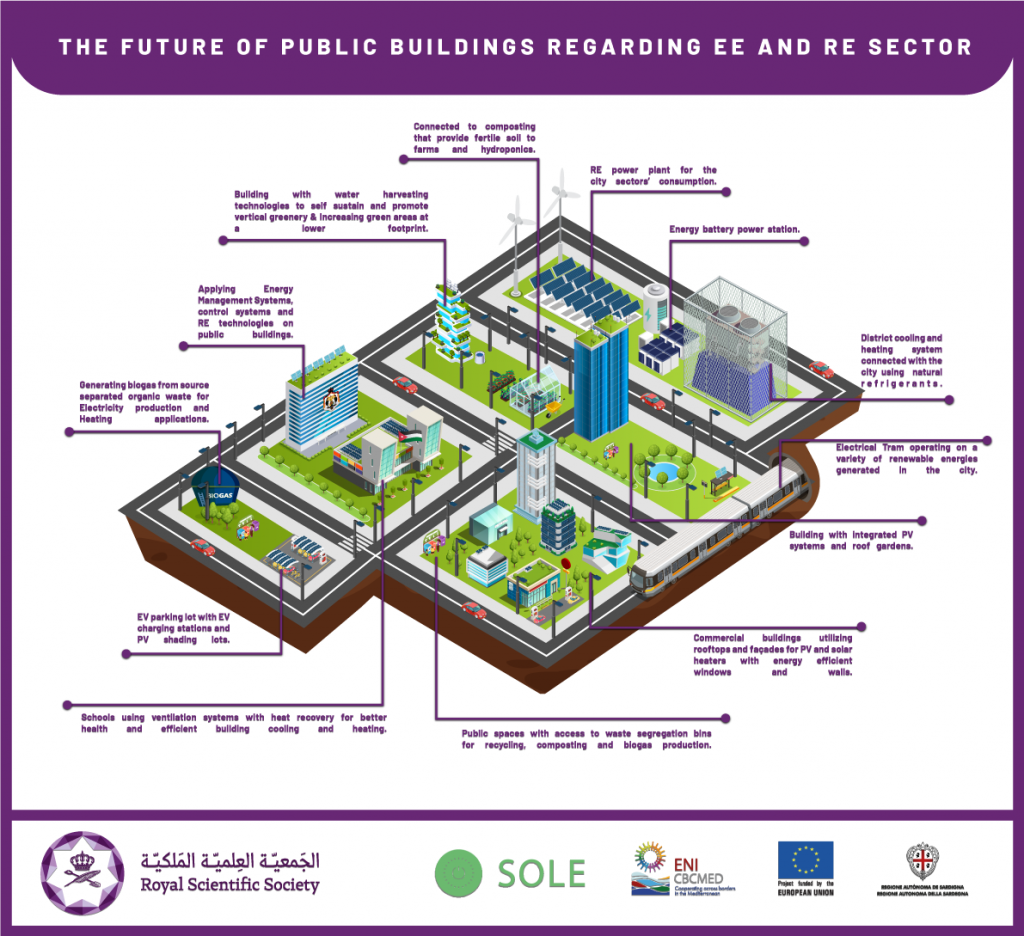SOLE in Jordan organised a workshop on the future of public buildings´ energy renovation
The Royal Scientific Society (RSS), SOLE partner in Jordan, organised the "Future of Public Buildings in Jordan" workshop on 28th Feb 2023 at the Royal Hotel in Amman. It aimed at promoting the concept of improving energy performance and at developing local and joint policy recommendations for energy renovations of public buildings in the Mediterranean area.
The meeting involved a group of relevant stakeholders to identify a common ground between the available technological solutions and the regulatory framework for energy requalification of public buildings, listing all critical issues which must be addressed in order to facilitate the implementation of the necessary interventions on public buildings to achieve the climate goals for 2050.

The participants especially focused on financing mechanisms and on the exhisting legislations as key factors which affect energy efficiency in public buildings and stressed out the need to develop a special guide for the rehabilitation of existing buildings to improve their energy performance.

Eng. Mohammad Alkhalafat (Royal Scientific Society of Jordan) gathers contributions from local stakeholders on how to facilitate energy requalification interventions on public buildings.
RSS also presented the energy efficiency measures and renewable energy technologies implemented in Iskan Al-Faiha’ School in Madaba which represents a success story within the SOLE project: Mrs. Entisar Al-Mahamid, the principal of Iskan Al-Faiha’ School, spoke about the importance of the project in improving the educational environment in terms of the quality of lighting and heating in winter and cooling in summer, which had a positive impact on students inside the classroom, in addition to reducing the electricity consumption.

SOLE is co-financed by Programme ENI CBC MED: it brings together 7 countries in the Mediterranean area to support cost-effective and innovative energy rehabilitations of public buildings while encouraging behavioural change in people and policy makers to reduce energy consumption.
Key findings from the workshop can also be found in the following illustration:










